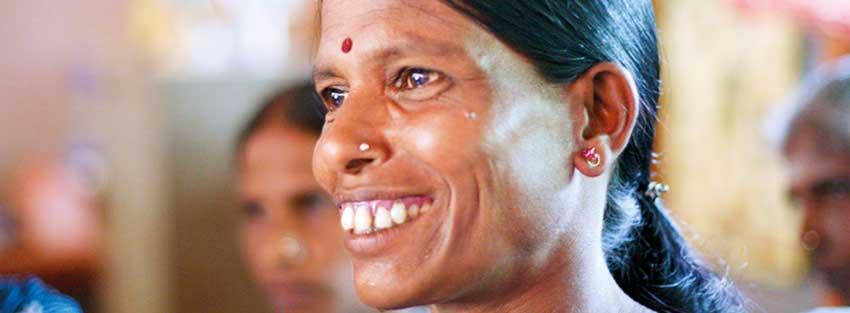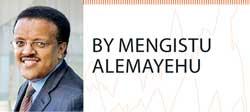21 Aug 2020 - {{hitsCtrl.values.hits}}

FY20 marks IFC’s largest investment period in Sri Lanka — over US$300 million — creating a roadmap to drive growth which is inclusive, prosperous, and above all, resilient
 In the midst of a global pandemic, IFC steps up its work in Sri Lanka—aiming to help mitigate some of the worst economic impacts and deliver tangible long-term benefits.
In the midst of a global pandemic, IFC steps up its work in Sri Lanka—aiming to help mitigate some of the worst economic impacts and deliver tangible long-term benefits.
Nations are often defined by their economic might, but Sri Lanka is best characterized by its resilience.
In the last 50 years, the country has shown a spirit that is at once inspiring and humbling. A 30-year civil war ending in 2009, political unrest, last year’s Easter bombings, and now with COVID-19, Sri Lanka has gone through a great deal.
We know this because IFC has been with the country and its people through all of this– supporting Sri Lanka by strengthening its private sector and helping create jobs. I know this personally because for over two decades I have been part of this journey up-close. It has been my privilege to have been part of some landmark engagements in Sri Lanka.
In the grim scenario created by the global pandemic, our resolve to lend support has doubled as have our efforts. We continue to find ways to support those in need by protecting jobs and helping businesses with working capital, particularly micro, small and medium sized enterprises (MSMEs). While we remain focused on immediate relief and work towards a resilient recovery, it also behoves us to look back and see how far we have come on the development journey with Sri Lanka and its people.
First investment
IFC’s first investment of US$3.25 million in the country’s textile sector can be traced back to 1970, when financing for private sector was not readily available. Our investment in the Bank of Ceylon served as a catalyst for increasing access to finance for other primary areas of
the economy.
However, our role in the financial sector extends far beyond that. IFC set up the first ever asset management company, CKN Fund Management, alongside Templeton Funds. Our investment in Fitch Rating Lanka in 2000, in what was a first-of-its-kind investment for the country, enabled Sri Lankan financial institutions to be part of the global financial services industry.
Credit ratings provide a relative measure of credit risk for investors and creditors and are vital to the industry. We have worked consistently with regulators including most recently with the Central Bank to craft Sri Lanka’s first National Financial Inclusion Strategy and the Sustainable Finance Roadmap.
We have been a steadfast partner to several banks in Sri Lanka including the country’s largest private sector bank, Commercial Bank of Ceylon (ComBank).
In recognition of the liquidity required by small and medium sized enterprises, (SMEs), which make up a large part of Sri Lanka’s economy, accounting for 80 percent of all businesses. IFC has extended another US$50 million to the Commercial Bank of Ceylon, with a third of this investment targeted for women-owned businesses, to help them cope with the adverse economic impacts of COVID-19. This is in line with our efforts to get funding to the people who need it the most – farmers, women led businesses and SMEs.
Responding to the needs of people, times
In Sri Lanka, we learnt through experience that straight jacketed investments were not necessarily an effective solution. Instead, we needed to be innovative and respond to the needs of people and times. In May 2009, following the three-decade conflict, many displaced people were ready to start afresh, but they had no home or assets.
In response, IFC helped one of its advisory clients, Lanka ORIX Micro Credit Private Limited Company (LOMC) to introduce a mechanism of group lending, one that did not need collateral.
Today, LOMC serves more than 170,000 clients. Not just that, as one of the implementing partners of the European Union Support to District Development Program (EU-SDDP), IFC assisted the country in making a transition from post-conflict assistance to reconstruction and development.
Supporting districts in the North and East, IFC initiatives facilitated over 21,000 loans, with over 600 micro, small and medium sized enterprises (MSMEs) integrated into supply chains with tourism promoted in the region.
Key factor
Inclusion is key. It’s why IFC supported transforming Sri Lanka’s largest private microfinance institution, SANASA into an SME and retail bank which helped expand much needed financial services to MSMEs in rural areas.
In a similar spirit, we worked with Sri Lanka’s Credit Information Bureau to facilitate a positive legal environment for a secured transaction registry and improve lending practices, making it easier for micro and small businesses to get loans and grow with few fixed assets.
What may be less familiar to people is our work in the infrastructure space. IFC has long recognized the opportunities and challenges of connectivity, logistics and communication faced by the island nation.
We were part of the initial investors that set up Dialog and the first private sector terminal at Colombo Port, SAGT. Our investment in the South Asia Gateway Terminal (SAGT) was one of the first public-private partnership projects (PPPs) in Sri Lanka. Today, SAGT offers fast, reliable, and efficient shipping services on par with Singapore and other ports serving major east-west shipping routes.
Many firsts
Again, as climate change impacts became an increasing concern, IFC made its first direct investment in wind power in SENOK Group in 2011 to boost the generation of renewable energy and increase the country’s
power sources.
And we are now assisting the government in a project to mobilise the private sector to participate in renewable power generation for the country.
With focus on job creation and value chains that many SME’s are part of, we have been investing steadily in the real sector, starting from our first textile sector loan in 1970. Tourism, retail and health sectors are a few that IFC has supported over the years. And with an eye to the future, we have also just invested US$ 175 million in John Keells Holding (JKH), IFC’s largest ever investment in Sri Lanka, to expand its supermarket chain in less developed regions and help fund expansion or refurbishment of hotel properties – moves that will generate significant jobs over the next five years.
Another one of the firsts was IFC’s US$ 2.5 million equity investment in PickMe, the local technology company which introduced ride-hailing services to the country – signaling our entry to the country’s venture capital arena. PickMe also quickly pivoted to provide an emergency lifeline during the COVID-19 lockdown by operating delivery fleets to assist people stranded at home.
Inclusion for us extends very much to gender and our Women in Work programme — a five-year US$ 11.5-million programme supported by the government of Australia— builds on best practices and IFC’s experience in setting up a coalition of businesses committed to strengthening the role of women. There are many firsts that IFC has been affiliated with in Sri Lanka. From the very beginning, IFC’s focus has been clear: maximize private sector solutions to development needs by strengthening capacity through advisory work that lays the groundwork for local and
international financing.
We focused on investing where the development impact could be high, creating markets, building institutions, and leveraging our global presence to bring international industry standards to local markets. Half a century later, this has translated into a transformational journey.
Resilient recovery
Now IFC, as the largest global development organization working with the private sector in emerging markets, stands ready to help the country as it grapples with the impact of COVID-19, to help move it onto the path of resilient recovery.
The pandemic comes at a time when Sri Lanka is facing macroeconomic challenges. According to the World Bank, the Sri Lankan economy is expected to contract by 3.2 percent in 2020 as the outbreak dampens export earnings, private consumption, and investment.
Tourism, which was the third largest and fastest growing source of foreign currency in Sri Lanka, accounted for almost US$ 4.4 billion of revenue in 2018 and US$ 3.6 billion in 2019. But closures of international airports since mid-March have brought arrivals down to almost zero from around 250,000 per month in the same period
last year.
IFC sees it role right now as a countercyclical investor. Our financing is aimed at sending a strong and positive signal to the investor community that investments in Sri Lanka remain viable, even in these uncertain times. This is vital for the country to chart its path towards resilient recovery. IFC has identified broad pillars that will unlock new drivers of growth and deliver inclusive benefits. Investments in sustainable infrastructure, productivity enhancements, and innovative offerings in traditional sectors such as eco-tourism and sustainable agriculture are some of the areas we are examining.
As we reflect on our 50 years in Sri Lanka, we are confident we have contributed to a changing landscape for other private sector players — delivering tangibile development impact for the people. Now, in response to the unusual times we are living in, FY20 marks IFC’s largest investment period in Sri Lanka — over US$300 million — creating a roadmap to drive growth which is inclusive, prosperous, and above all, resilient.
(The writer is Regional Director for IFC South Asia)
24 Dec 2024 8 hours ago
24 Dec 2024 24 Dec 2024
24 Dec 2024 24 Dec 2024
24 Dec 2024 24 Dec 2024
24 Dec 2024 24 Dec 2024